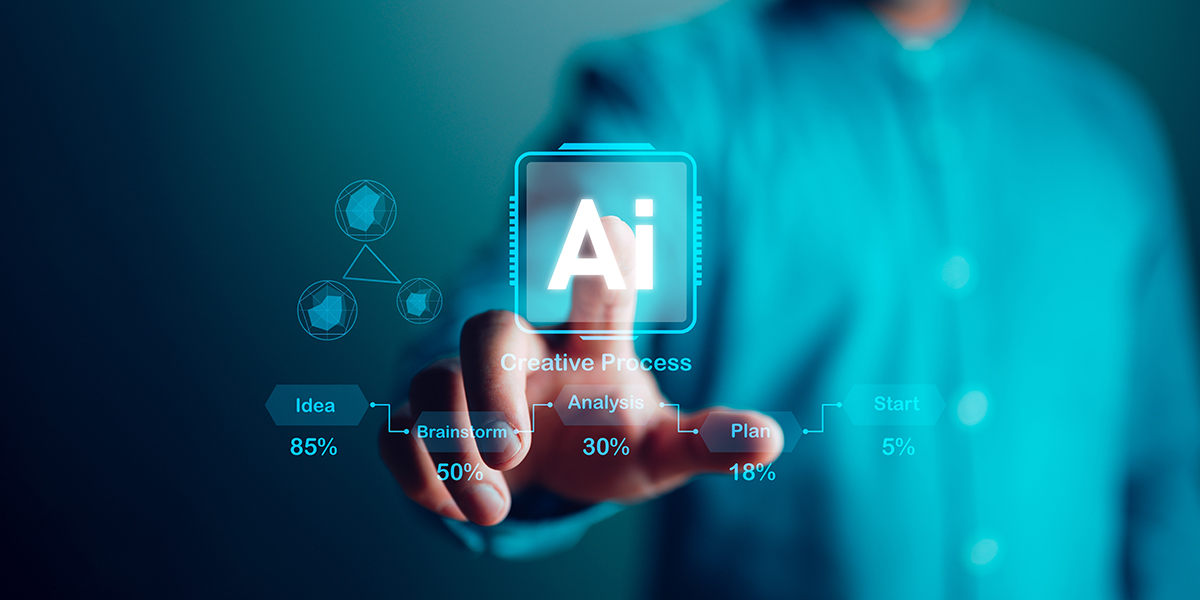
Artificial Intelligence: Pros and Cons in the Application to Business Activities
21 December 2023Artificial Intelligence has already had a significant impact on companies and the manufacturing economy and will play an increasingly important role shortly.
The applications of AI are many and involve different business sectors. From marketing to manufacturing, the use of artificial intelligence is already widespread in Italy and around the world. The impact on companies and the manufacturing economy is significant and constantly growing. In Italy, the most widespread use of these technologies is Intelligent Data Processing (35% market share): the fast and intelligent management of Big Data that allows, for example, to anticipate market trends and make strategic marketing efficient.
Bologna Business School is one of the pioneers in the study of new technologies side by side with high-level management training: with its Professional Masters in Artificial Intelligence and Innovation Management, Data Science and Business Analytics, and Executive Masters in Artificial Intelligence for Business and Business Analytics and Data Science, BBS courses combine managerial experience and technology knowledge.
Applications of Artificial Intelligence in the corporate, commercial, and manufacturing worlds include process automation, virtual customer support (chatbots), and personalization of product offerings through massive and immediate data analysis. Again, supply chain automation. Price optimization by analyzing data on demand, competition, and product positioning, and forecasting economic data. Still, robotic process automation (RPA) and the development of robotic prototypes that can emulate human behavior.
The benefits of AI applied to business and the workplace is many and easily identified: eliminating human error to automate repetitive tasks and improve operational efficiency, increasing the speed of task execution, and freeing employees for more strategic and creative activities.
In a high-tech business world, one needs vertical and transversal knowledge: Bologna Business School, with a Faculty of excellence made up of professors and executives from leading companies, can count on the technological system of the University of Bologna, a true vanguard in Italy. With its technopole hosting Leonardo, one of the eight supercomputers that will form the European high-performance computing network EuroHPC, Emilia-Romagna is among the world capitals of applied technological development.
But what are the potential drawbacks or risks of AI for companies and the business community?
The most obvious doubt is that it will produce a loss of human workforce, distributing the phenomenon across all sectors: from manufacturing to marketing, from creativity to data analysis all businesses are impacted by the very rapid development of AI and its applications.
From these topics, we develop ethical issues related to artificial intelligence. On the one hand, we may ask if the speed with which these technologies are impacting the world of work may create social landslides and related crises. On the other, the exponential growth of inference capabilities and the related development of self-learning systems confront us with a new question: how will humans relate to these technologies? What will be the roles and what will be the guarantees for our species in the face of supercomputers capable of “thinking” and learning with a speed and precision that is precluded to us by nature?
The pros and cons of AI and its diffusion are wide-ranging issues. In the business arena, the central question remains how to manage the introduction of artificial intelligence into an enterprise. Introducing AI into the enterprise can be a complex process that must be managed. First, goals must be defined, determining what this technology is for. Then, staff must be trained and involved, to avoid anxiety and worry and for the business processes that will be changed to be effective and understandable, hence usable, by employees. Finally, monitor and optimize: AI implementation is not a static process, but a company-wide development. For this very reason, it is necessary to carefully weigh the pros and cons of AI: clear and inclusive communication will be key to keeping the workforce engaged and safe at a time of radical transition for the business.
The high level of management training that BBS can provide, combined with the contact with companies that have made industrial automation, robotics, and Big Data analysis their business by achieving global leadership is a guarantee of success in the world of managers able to lead companies with extensive use of AI.
In conclusion, we can analyze the negative aspects of artificial intelligence, its pros and cons, and risks, but we cannot go against a revolution that is already in progress. Artificial intelligence is part of our lives and businesses anyway, a business that sees itself projected into the future needs to implement AI. For this to positively impact society, developments in these technologies need to be constantly monitored and analyzed. Train and update staff so that they can be invested in new tasks. Finally, continue to keep the focus on the more philosophical questions that a leap that is no longer just technological poses about our species and its future.
Check out Bologna Business School’s Master’s programs with a focus on AI:
- Artificial Intelligence and Innovation Management Professional Master
- Data Science and Business Analytics Professional Master
- Artificial Intelligence for Business Executive Master
- Business Analytics and Data Science Executive Master
